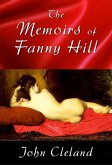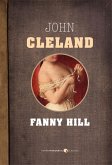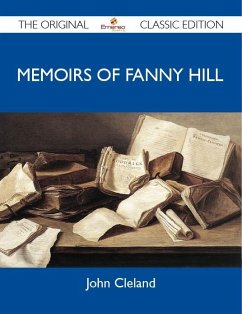John Cleland's 'The Memoirs of Fanny Hill' is a groundbreaking piece of 18th century erotic literature that explores the sexual awakening and adventures of a young woman named Fanny Hill. Cleland's vivid and explicit descriptions of Fanny's experiences push the boundaries of what was acceptable in literature at the time, making it both controversial and influential in the history of erotica. Written in a bold and unabashed style, the book offers a unique insight into the sexual mores and attitudes of the Georgian era, making it a fascinating read for those interested in the evolution of erotic fiction.
Dieser Download kann aus rechtlichen Gründen nur mit Rechnungsadresse in A, B, BG, CY, CZ, D, DK, EW, E, FIN, F, GR, H, IRL, I, LT, L, LR, M, NL, PL, P, R, S, SLO, SK ausgeliefert werden.









